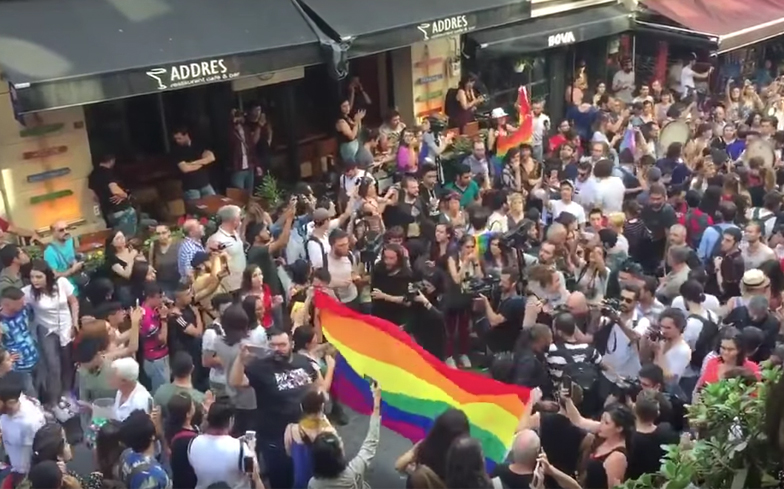
The activists were arrested following a Pride march in Ankara.
Human rights organisations are urging Turkey to drop legal cases against 19 LGBTQ activists due to go on trial on Tuesday (12 November). 18 students and one faculty member from the Ankara-based Middle East Technical University were charged after holding a Pride event on campus.
The Guardian reports that the protesters were charged with “participating in an unlawful assembly” and “resisting despite warning”. Despite Pride marches having been held on the campus since 2011, the university warned that a ban on Pride marches in the region would be applied on campus. This is despite a ruling by a court in Ankara earlier this year overturning that ban.
Björn van Roozendaal, the programmes director for the International Lesbian, Gay, Bisexual, Trans and Intersex Association (ILGA-Europe), who said they’d represent the accused, said: “The defenders were practising their right to assembly and standing up for the rights of others in a peaceful manner when the police attacked and arrested them.
“No one should be prosecuted for exercising their right to peaceful assembly. All charges against the human rights defenders should be dropped immediately, and this case should be closed.”
Amnesty International also condemned the arrests, with their European campaigns director, Fotis Filippou saying: “It is a dark day when university authorities call the police to silence students who are simply demanding their rights to dignity and equality.
“All those detained by police must be released immediately and unconditionally.”

Despite homosexuality being legal in Turkey, the authorities have cracked down on events like Pride marches and the Queer Olympix, usually claiming “social sensitivities”.
Current Turkish laws allow governors and district governors to ban events for up to a month if they believe they may be a threat to”national security, public order, prevention of crime, protection of public health, public morality or the rights and freedoms of others.”
The lifting of the ban on Pride marches in Ankara earlier this year was welcomed by LGBTQ groups. In a statement after the ruling, a lawyer for Kaos GL, Hayriye Kara, said: “We can say that the court has accepted our arguments that we have advocated since the day when the ban has declared.
“Instead of banning fundamental rights and freedoms to protect social peace, they said that the group that is vulnerable to any attack should be protected. It can be said that the court ruled that the state must protect the fundamental rights and freedoms of LGBTI+s.”
Related: Turkey won’t perform in Eurovision again because of LGBTQ contestants



